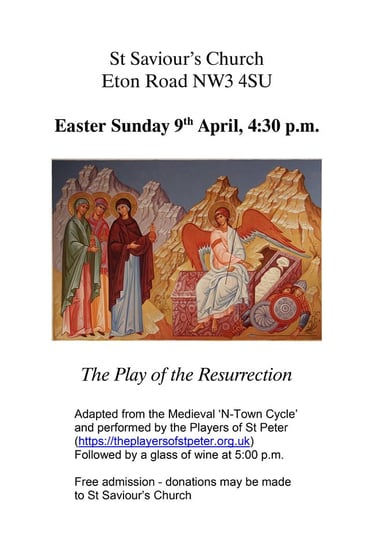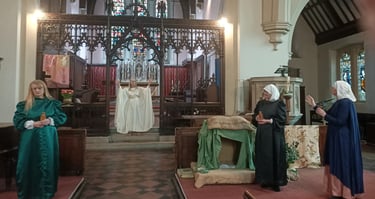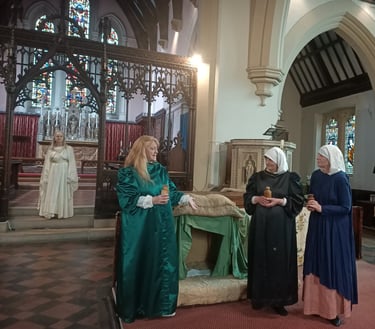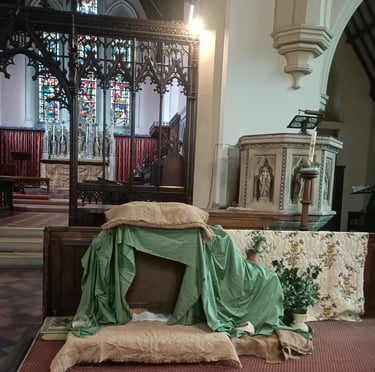

The Play of the Resurrection - from the N-Town Cycle
Performed at St Saviour
9th April 2023






The text performed this afternoon is an excerpt from a much longer and more complex two-part Passion Play, covering the events of Christ’s betrayal, trial, crucifixion, and resurrection appearances. Surviving in a manuscript written sometime in the mid-fifteenth century and localised by its language to the region of East Anglia, this Passion Play was designed as a large public spectacle to be performed in the round on multiple platforms in an outdoor setting. The playwright drew on a range of source materials introducing non-biblical events such as Christ’s descent into Hell, and combining the gospel accounts so as to include both the visit to the sepulchre by the three women, as in the Gospel of Matthew, and the appearance of the risen Christ to Mary Magdalen alone, as in the Gospel of John.
This Passion Play is itself part of a larger compilation of plays in the manuscript, the contents of which as a whole form a sequence with a continuous sweep of action extending from Creation to Judgement Day, but were probably not all originally written for performance in any one place at any one time. This collection of plays takes its modern title from lines in the manuscript announcing a performance in ‘N-town’, where ‘N’ stands for a particular name to be inserted, indicating that at least some of the plays in the manuscript were at one stage intended for touring.
Throughout the Middle Ages, alongside plays like this in English, there continued, in monastic houses and many other churches, a tradition of ceremonial, symbolic enactment of the gospel account of the visit of the three women to the tomb, with sung Latin dialogue, as part of the liturgy of Matins on Easter morning. As a glimpse of this parallel dramatic tradition we conclude our performance with a verse from a plainsong hymn, ’Victimae Paschali’, known to have formed a part of such a ceremony in certain places, including Barking Abbey.
The following text was used for the programme notes